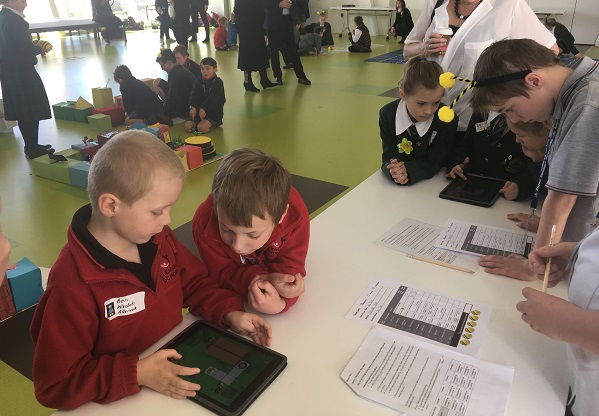
The Computer Science Unplugged project (CSUnplugged) is a collection of free learning activities that teach computer science through games and puzzles involving cards, string, crayons and physical activity. The activities introduce students to computational thinking (CT) through concepts such as binary numbers, algorithms and data compression, but separated – “unplugged” – from the distractions and technical details of having to use computers.
The program was first developed 20 years ago by professor Tim Bell of Canterbury Universit,20 and is now available in languages and developed a strong following around the world as an extension and outreach program for classrooms and science centres. The material is suitable for people of all ages and backgrounds, from primary school to the elderly, and is available free of charge under a Creative Commons license that allows it to be copied.
The grant from Microsoft will now enable Professor Bell to re-factor the material so it will have greater applicability and usability within schooling systems all around the world. Professor Bell says he is thrilled to receive the grant from Microsoft, which will enable this program development work to be done in New Zealand.
“One of the challenges is how we help teachers and students get started with teaching and learning computational thinking. CS Unplugged introduces the concept through a fun and engaging program that can get them started without the need for technology. We have found that enabling teachers and students to approach the subject through ‘unplugged’ lessons prior to getting onto a computer builds confidence and enthusiasm, and gets students thinking about the concepts involved,” he says.
“In its original form, CS Unplugged was designed for outreach and extension at a time when having the subject in the curriculum seemed unlikely. In the last few years many countries have realised the significance of the subject for their students, and have been working out how to get computer science topics into schools. While the CS Unplugged project has been a popular element of this, in its current form it needs some adaptation for use in the typical classroom.”
Professor Bell says the new project that the Microsoft grant is funding will involve converting CS Unplugged to unit plans and lesson plans for teachers, adding videos about how it can be used in the classroom, and providing clear links to “plugged in” follow-up activities involving programming, so that it can be more easily used in the classroom setting.
The funding will also support a sister project, the Computer Science Field Guide, which is an online resource for teaching the subject to high school students. The guide will be expanded to cover more topics, and will include more multimedia and interactive elements to engage students.
The much-delayed English draft curriculum is now out for consultation, generating discussion from teachers.
Research from AUT demonstrates arts, culture and recreation have positive impacts on all aspects of…
How effective has the school phone ban been in achieving its aims? Researchers from the…
School camps and excursions deliver hands on learning experiences, helping to consolidate classroom learning.
Innovations in AV technologies present new opportunities to engage with students. We look at how…
A new report from the University of Auckland’s Our Voices Project asks young people what…
This website uses cookies.